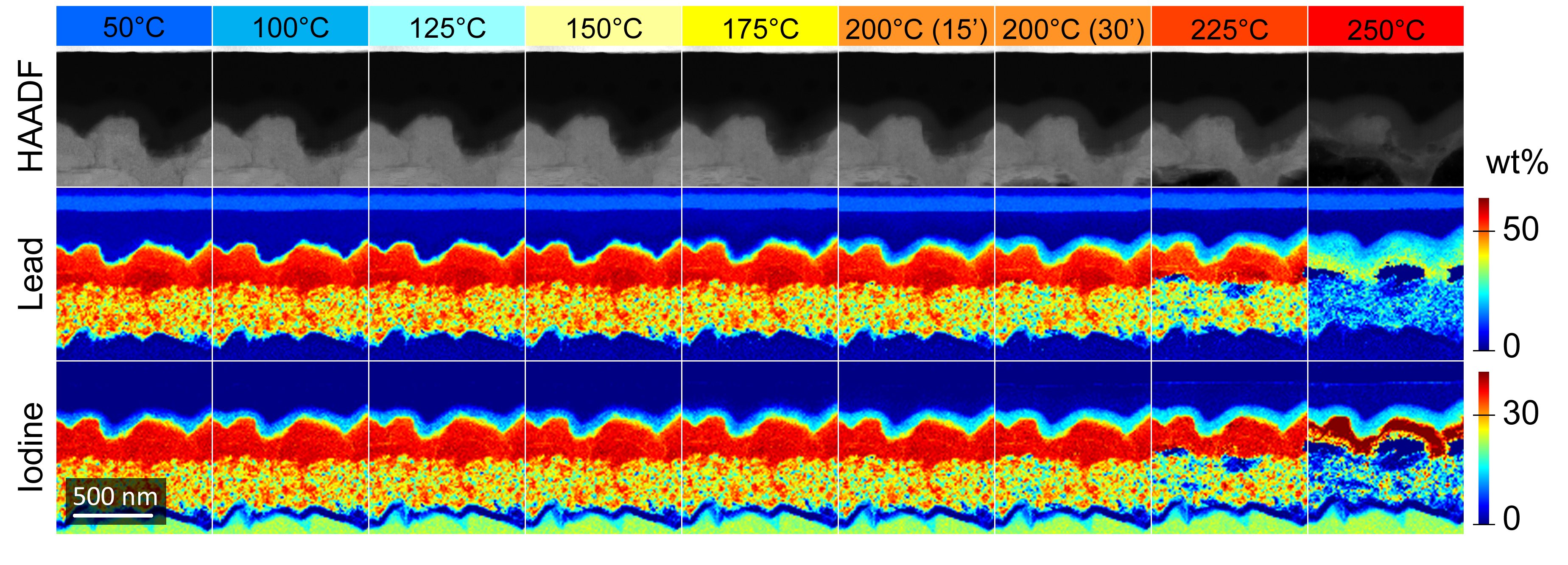In situ EM

Emergent challenges for electron microscopy include the study of dynamic processes in situ, under operating conditions compatible with a range of important processes, such as crystal nucleation and growth, catalytic reactions, electrochemical energy storage, electronic and ionic transport. Research in these new directions is possible with dedicated TEM specimen holders that apply well defined stimuli to the materials and devices under investigation - from temperature, to electric bias, to gas pressure, to liquid flow- in the desired combination.
The figure above summarises a typical in situ heating experiment that was carried out in the group (Open repository link here, publisher here). By using EDX, we can map the elemental distribution of two species - I and Pb - as they migrate in a perovskite solar cell. The application of in situ heating allows detailed monitoring of the atomic diffusion, linked to one of the failure modes of these devices.
We are designing experiments to study a variety of materials and processes, such as battery electrodes and charge-discharge cycles, electroless plating and corrosion, caloric and piezoelectric composites, metal-oxide catalytic interactions under controlled gaseous environments. We are also developing novel tools for in situ TEM, such as light injection and biasing holders for photovoltaic and plasmonic systems, and liquid flow holders with microfluidic reactors for the synthesis of nanocrystals.
